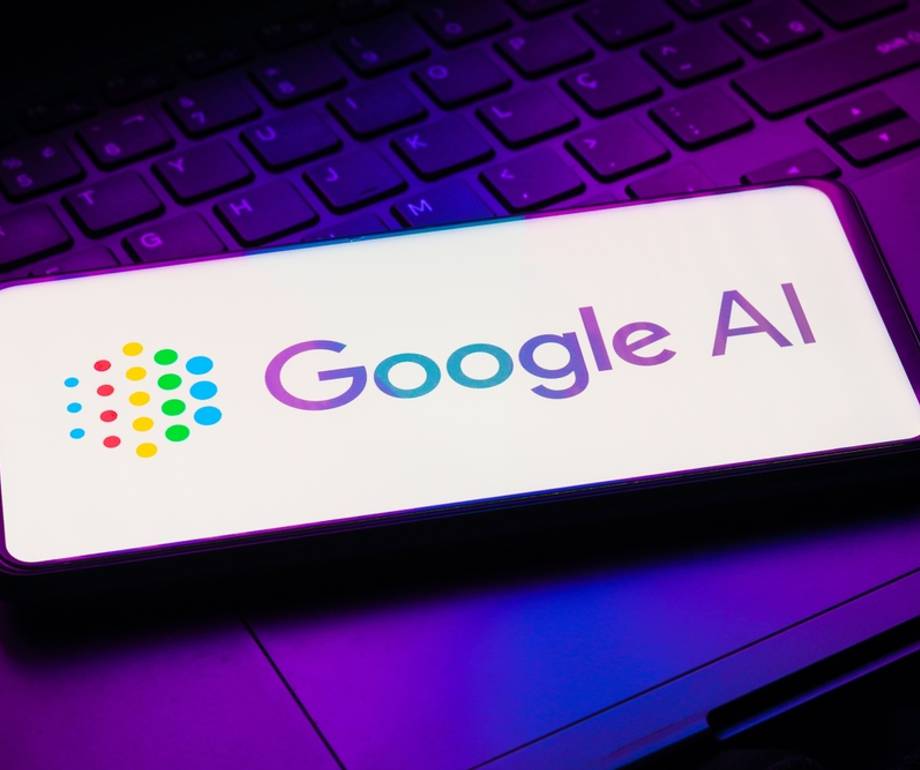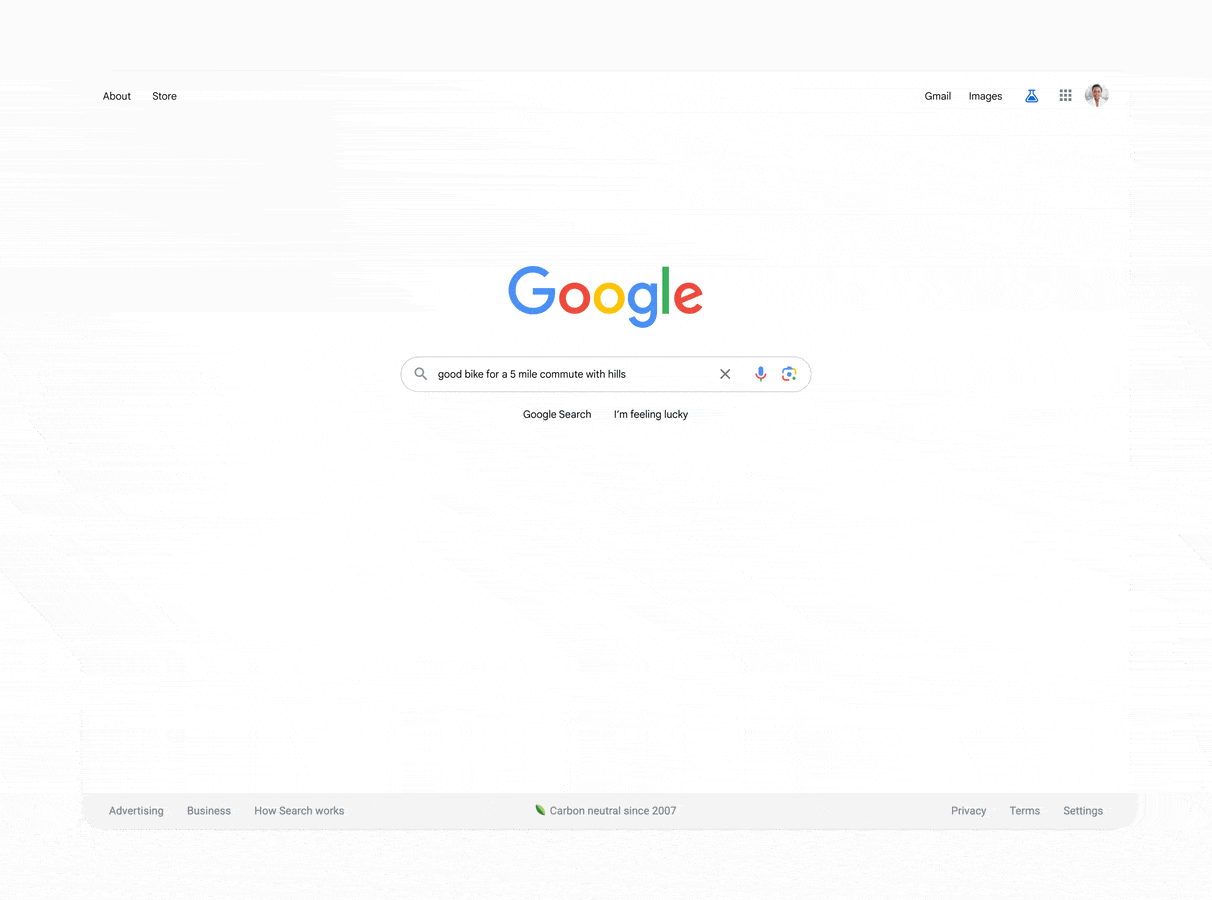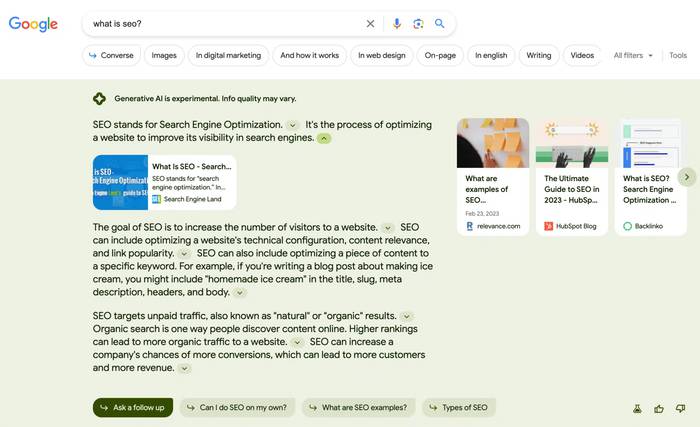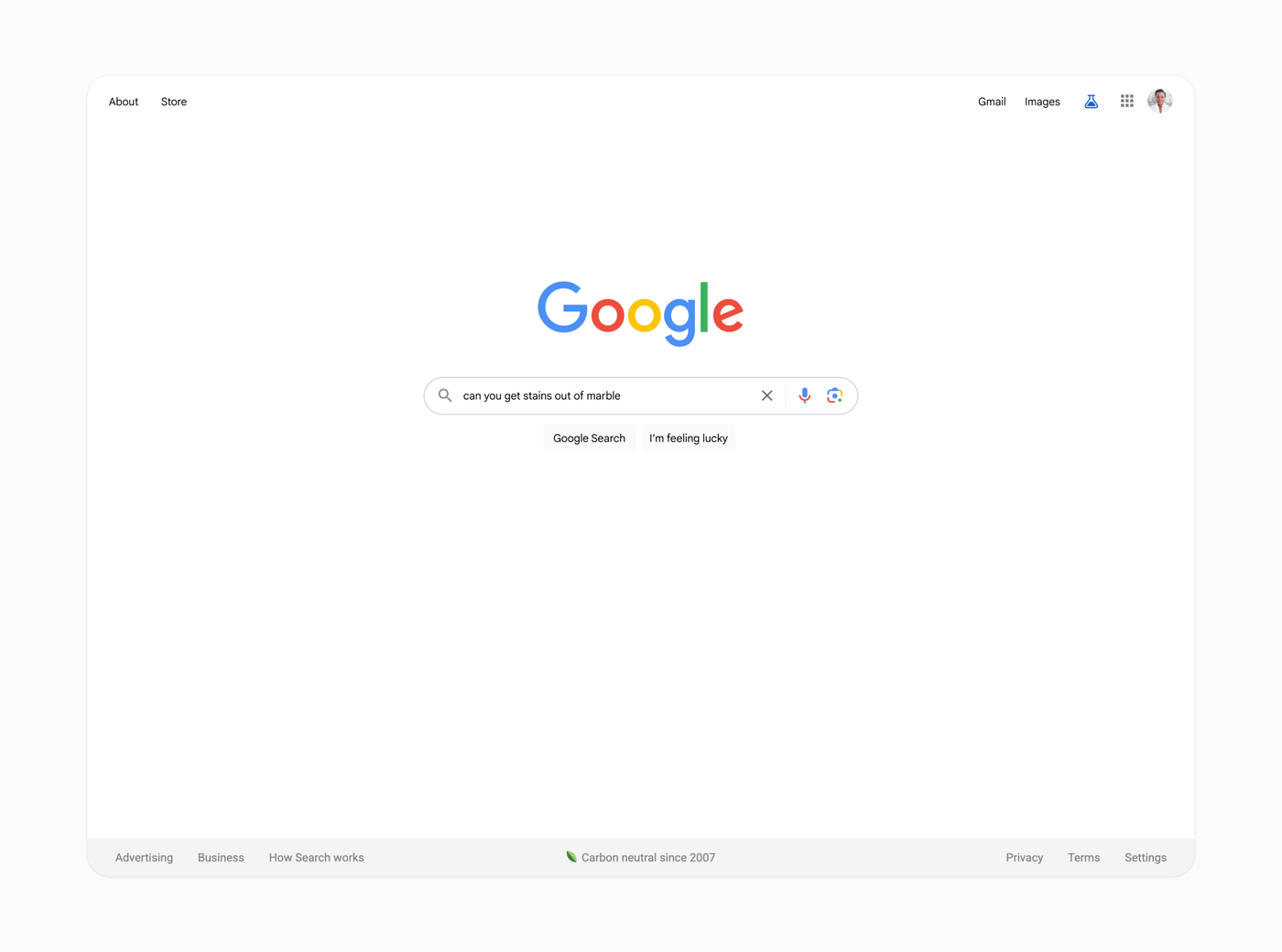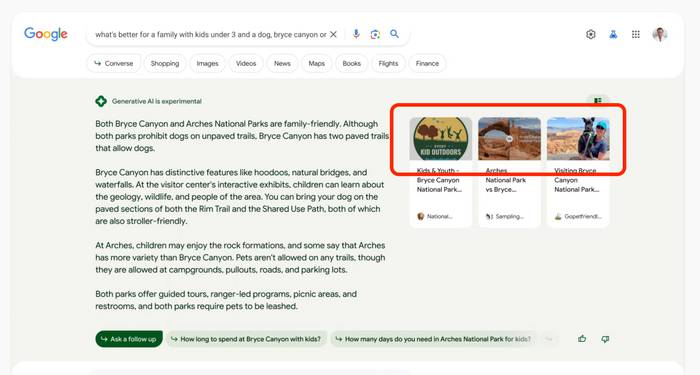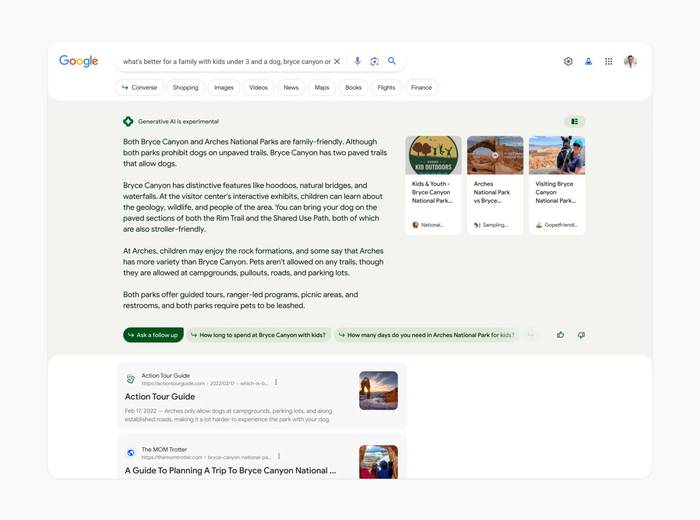Note: Originally published in May 2023. Updated in September 2023 and February 2024 to include new developments.
The impact of generative artificial intelligence (AI) on the SEO industry has been a hot topic for quite a while. Firstly, tools like ChatGPT burst onto the scene in 2022, prompting ruminations about its effect on content creation.
Then, at the Google I/O conference in May 2023, it was first revealed that generative AI is making its way to Google Search in the form of ‘Search Generative Experience’ — or SGE.
Instead of traditional results, your searches may be answered with a generative AI ‘snapshot’.
Let's dive in and explore the impact of SGE on SEO and content, including how you can brace for a world with AI-powered search results.
What is Google’s AI 'Search Generative Experience' (SGE)?
It’s a new approach to Google Search results. In SGE, certain search queries trigger a snippet of AI-generated text that aims to answer the user’s query.
This AI snapshot is not completely replacing traditional search result, but it sits in a box above the ’10 blue links’ we know and love.There will be a selection of clickable tiles that link to relevant third-party websites, as well as a number of suggested follow-up queries. A ‘Conversations’ feature will allow users to ask follow-up questions and gather further information.
“You’ll see an AI-powered snapshot of key information to consider, with links to dig deeper… You’ll also find helpful jumping-off points to web content and a range of perspectives that you can dig into.”
These AI answers may also contain small dropdown arrows, which when clicked, cite a relevant resource that users can visit.
In some searches, it looks like users will be able to hover over potentially new or confusing terms to reveal a snapshot definition, again, with a source cited.
Google has continued to reveal more new features in SGE. Namely, images and videos will feature in the AI generated snippets.
‘SGE while browsing’
Google is has also suggested that SGE might even be able to accompany us throughout our internet browsing — not just on search results.
Rather aptly named SGE while browsing, the idea is to help users digest long-form content by providing overviews and discover specific parts of content that interest them. These key pointers are AI generated.
It’s currently classified as an experiment and is being tested on Chrome and the Google app.
Will every Google search query trigger SGE?
No. For the majority of searches, it's predicted that AI-generated snapshots will be absent. In Michael King's study of SGE, 60% of the 90,000 queries tested did not produce an AI snapshot.
That's right: you won’t be seeing generative AI answers for every search. For so-called ‘your money or your life’ (YMYL) topics, like health and finance, it will be keeping particularly a wide berth.
Think of it in a similar way to how only certain searches trigger a featured snippet at present.
Also, for geographical and location-based searches, we know that AI has a tendency to struggle. Users may not trust its output, which will consequently affect the extent to which it's adopted.
Basically, expect SGE's launch to be very tentative and carefully measured; the spectre of AI hallucinations will be a frightening one for Google. Which conveniently moves us onto the million-dollar question...
When is Search Generative Experience being rolled out?
As of February 2024, Search Generative Experience is still being tested in Search Labs, which is sadly not available in the UK.
There’s no knowing how long it will take for generative AI to arrive in search results near you, but we wouldn't be surprised if you start seeing some form of SGE for certain queries during the first half of 2024 — but don't hold us to that.
But as of right now, SGE is purely experimental.
How will SGE affect my search visibility and traffic?
Will AI answers in search results harm my traffic? The answer: potentially, but it's unlikely to be an existential threat. There's a dearth of data about how SGE impacts websites — it's just too early to tell.
As long as you're still creating helpful, user-first content that conforms Google's E-E-A-T quality guidelines, there's no doubt you'll still be highly visible. SGE cites its sources and there are still the traditional blue links sitting beneath the snapshot.
Also, don't forget that it won't be triggered for all queries.
“As we bring generative AI into Search, we’re committed to continue sending valuable traffic to sites across the web.”
We're not going to suggest that there won't be any impact to your traffic, of course. One (admittedly small) study of 23 websites in the technology industry saw an aggregatte 18-64% drop in traffic due to SGE.
One, however, saw a 219% gain in traffic!
There might be less value attached to ranking highly for basic 'what is' and informational searches; we mean those topics or queries where users get an immediate answer and there's no desire to learn more or dig deeper.
The question to ask must be: how important are these lost sessions? If users are only after a very basic instant answer, then probably not very.
The upside: those that do visit your website will be more informed and have a higher intent. Commercially-driven searches are the most important for your brand's bottom line, and it looks like these won't be impacted to any great extent.
8 ways Search Generative Experience (SGE) might impact SEO and content creation
1. Goodbye featured snippets — hello AI
Featured snippets have been the holy grail of any content SEO strategy for a while. They’re the excerpts of text that appear at the top of the search results for certain queries.
As a more detailed, dynamic and information-packed alternative, it might not be wildly unreasonable to suggest that SGE will replace the featured snippet. Google has been gradually reducing their number in recent years, anyway.
2. Compelling, relevant meta images may become increasingly important
With links to third-party sites throughout SGE output, there’s plenty of chance for your website to be included. But you need to stand out.
One way of making the cards that link to your website more appealing is by including an enticing meta image that’s clearly relevant to the page.
3. Photos and videos will still be key for some searches
As Google announced that photos and videos are part of SGE output for certain searches, making sure you provide users with this sort of content is a key consideration for succeeding in an AI search landscape.
Examples of video-led search results where this might apply include searches like ‘how to install decking’, ‘how to do kick ups’ and ‘downward dog yoga pose’.
If you’re looking to attract users who are performing searches like this, levelling up your visual content might be key for SGE success.
4. Less importance on the ‘top 10’
As Google moves further away from the traditional ‘10 blue links’ to SERPs that have greater and richer features, reporting only on ranking positions means you might be missing the bigger picture.
Whilst ranking in the top 10 is always going to be a measure of search visibility success to some extent, appearing as a cited resource in a generative AI snapshot could be an equally valuable position to hold for consumer trust, authority and awareness.
5. SGE might impact traffic for some informational queries
For some time, Google has been moving towards promoting ‘zero click’ searches. That is, aiming to completely satisfy a user’s question without requiring them to navigate away from the search results.
If Google can fully answer a user’s question on the results page, you might need to brace for a decrease in organic traffic. As we touched on earlier, this could be particularly true for basic, one-time informational queries, where further research isn’t always necessary — like recipes.
However, given the complexity of many user journeys, it’s still likely that users will want to explore cited resources. Those higher-value, commercially-driven users will still need to visit websites. These are the sessions that ultimately really matter for conversions.
It’s all speculation at this point. Don’t forget, too, that generative AI won’t be triggered for every single query. Google still needs to reward content creators and encourage them to continue, or what will its AI models be trained on?
Indeed, Google is keen to stress that they won't be thieving your traffic.
“SGE is designed to be a jumping-off point for exploring helpful information on the web, with links to search results included alongside each AI overview.”
6. User-first, informative content is as important as ever
SGE might raise the prospect of more zero-click searches and dampened organic traffic, but don’t consider abandoning SEO content creation. In fact, the case for comprehensive, user-first content is as strong as it’s ever been before — if not stronger.
To appear as a cited card in the generative AI output, you’ll need to demonstrate your expertise as a brand. Aim to answer all the questions your customers have through rich, in-depth content, like buyer’s guides and educational pieces.
Google’s search ranking systems reward brands that create content demonstrating ‘E-E-A-T’ — expertise, experience, authority and trustworthiness — and this isn’t going to change any time soon. Continue to create unique, user-first content for your audience, making the most of your in-house experts.
7. The rise of the long-tail keyword
SGE is a more interactive experience than traditional searching. This could affect how we use search engines.
The new Conversations feature, in particular, may give rise to more natural, long-tail search queries — as seen in the example Google provided: ‘what’s better for a family with kids under three and a dog, bryce canyon or arches’. It's probably time to make sure you're exploring those most frequented asked and using natural language in your content.
Will we need to create content that’s more conversational and ‘snackable’? The idea hasn’t changed — to answer your customers’ queries and fulfil their needs — but the way we do so in our content might.
8. Watch your publish dates
Google has revealed that sources cited in the AI output will have a publish date. So, if you’re optimising some older content to include new information, don’t forget to give it a refreshed publish date — it’ll help the content to appear more relevant and recent to users, encouraging clicks from SGE.
Search generative experience in the UK: key takeaways
Firstly, don’t panic: any impact on traffic will likely be for basic, lower-value informational queries.
Don’t forget that AI snapshots won’t be triggered for every query — the traditional blue links will still be accessible to users. Also, Google needs to continue to incentivise content creators, or there’ll soon be very little for the AI snapshots to learn from.
Remember, too, that Google Search is by far the brand’s most successful and lucrative product. Changes are sure to be measured and carefully calculated. Who remembers the furore about a voice search revolution that failed to materialise
Once SGE begins to roll out in the UK, be sure to test its prevalence for your most important search queries and topics. Keep Google Search Console and GA4 close by to monitor any impact on traffic and conversion levels.
If you’d like a helping hand keeping on top of all these changes, our SEO team would be delighted to chat. We’ve delivered clear, measurable results for clients across all sectors — check out some of our SEO work for brands across home and garden, health, travel, food and drink and photography.
Navigate the changing search engine landscape with Extreme
Get in touchPost by

Johnny bridges our content and SEO teams, creating and managing strategies that elevate clients' organic search visibility.
Project
